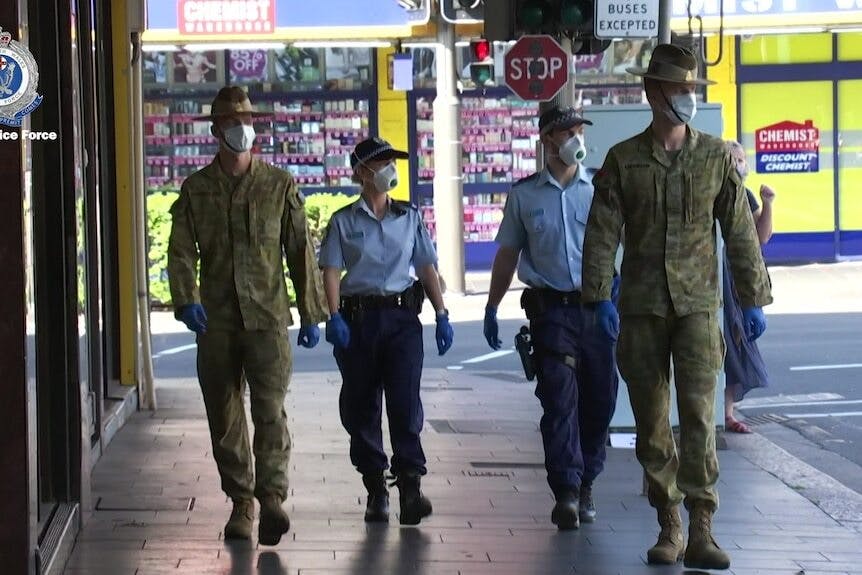You can’t police your way out of a pandemic

Tune into the 11am daily press conferences of the New South Wales government and you will hear a familiar refrain from Premier Gladys Berejiklian: the reason the pandemic continues to spread is because there are “a handful of people who are wilfully breaking the rules and putting the rest of the community at risk”. When journalists ask her why Bunnings is still open or why further restrictions won’t work, the reply is the same: blame the minority of rule breakers.
It is on this basis that Berejiklian has pursued a strategy focusing on deploying the police to issue fines in outbreak areas.
Obviously, people should act in a socially conscious way to limit the spread of the virus. However, the reality is that it is not the actions of a minority of individual rule breakers driving the spread of COVID. This was admitted at the press conference on 19 August. Deputy Chief Health Officer Marianne Gale explained that individuals breaking the rules are not the major cause of transmission:
“We’re seeing younger people and those who are often those authorised workers, those people that provide essential services, who work in aged care, work in disability, who work in healthcare settings, who work in factories, work in shopping centres. And so, transmission is happening between workplaces and households.”
She added, “So for the vast majority of people, it’s not anybody doing the wrong thing. It’s what we are seeing with the Delta variant that is so highly transmissible”.
So why does Berejiklian continue with the line about rule breakers? Because it is a distraction from her government’s own failures to contain the spread of the virus. They should have locked down earlier than they did, and they should have done it more seriously than they have been willing to do.
This was confirmed at the recent hearing of the NSW parliament’s Public Accountability Committee, at which it was revealed that the government refused to lock down Sydney for ten days after community transmission of the Delta variant had been confirmed at one of the early super spreader events in the eastern suburbs.
It is unsurprising, then, that the government has been cagey about publishing information about outbreaks in workplaces. On 17 August, NSW Health stopped publishing the details of apparently “low-risk” transmission sites. And while it explained that 70 percent of transmission was occurring in households, it didn’t say how many of those households had been exposed due to people going to work.
To admit that transmission is primarily occurring within workplaces, and then in the families of those workers, would put the focus on the responsibility of businesses rather than of individuals, which is precisely why the government wants to avoid it as much as possible.
But the reality is that we can’t police our way out of this pandemic.
After all, what’s the point in introducing curfews, mobilising more police, increasing fines and flying helicopters over suburbs when key links of transmission are among the hundreds of thousands of people who have to go to work every day? What difference is increasing fines from $1,000 to $5,000 going to make?
The approach is typical of governments that say that social problems can be fixed only by individuals taking responsibility for their own circumstances, and that the police force is the only institution that can enforce social rules.
The double standard is clear. Despite being key transmission sites of the virus, very few businesses have been fined by the police, who instead focus on patrolling suburban streets and playgrounds. Health Minister Brad Hazzard can barely contain his deeply ingrained prejudices about people in western Sydney, but there is no vitriol directed against those who deserve it: the business owners who want to keep making profits no matter the cost in human life.
Many more so-called essential workplaces could be shut down, or at least have activities dramatically reduced. The workers should be given full stand-down pay to limit the economic burden. Obviously, not all workplaces can be shut down—some are genuinely essential. But even here, much more could be done. Rosters could be organised to limit the amount of contact between different groups of workers, health and safety protocols could be strengthened, click and collect made mandatory where possible, adequate ventilation systems installed. Of course, this would mean more demands placed on businesses, which the pro-corporate state government is loath to do.